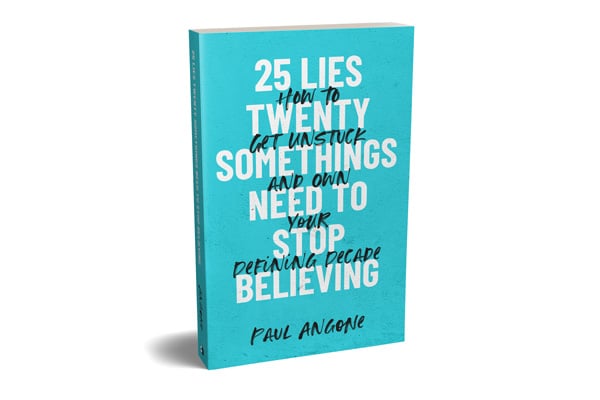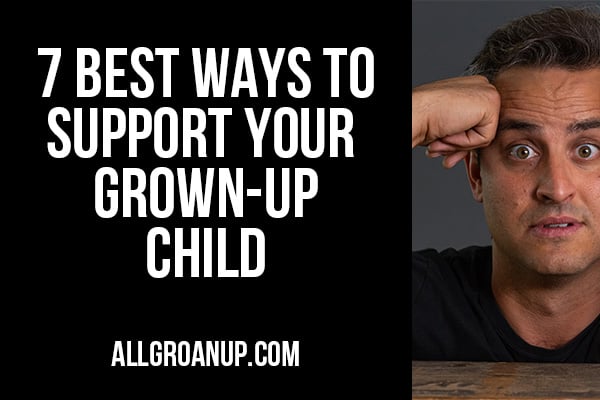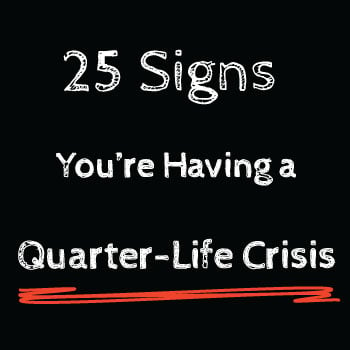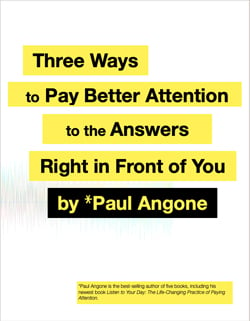Parenting your grown-up children is complex.
How do you “be there” for your grown-up children without being “too there” for your grown-up child?
It takes a different kind of parenting mindset to reach your twentysomething child that is more nuanced and possibly a different dynamic than what you’re even used to. I’ll explain more below.
Through my experience writing four books for twentysomethings, speaking to and hearing from thousands of emerging adults over the years, as well as speaking to leaders in organizations on how to best lead and retain young professionals, I have formulated some good strategies for parents on the best ways to support and connect with your grown-up children.
Now, if you are a twentysomething reading this, don’t leave yet. You might want to forward this email on to your parents! 🙂 Also, I’d love to hear your opinion on these seven points below.
7 Best Ways to Support Your Grown-Up Children
1. Reassure Your Twentysomething Child That They Haven’t Missed Their Chance
Throughout my many years working with twentysomethings, one of the big lies I find twentysomethings believing is “I’ve missed my chance.”
They fear that they will never be successful. They look at social media and feel like everyone else is experiencing the success that they were supposed to. Since their twenties have been filled with unmet expectations, they begin to lose hope and motivation.
In my new book 25 Lies Twentysomethings Need to Stop Believing, I tackle this lie head on as I share the story of another twentysomething who felt like he had completely missed his chance at success. This twentysomething was in a heavy metal band, but their first album flopped. Then his girlfriend dumped him. Completely losing hope that his life would amount to anything, this twentysomething even attempted suicide.
Thankfully, he wasn’t successful and he moved to Los Angeles to escape his failures. He went back to the piano where he’d first learned how to play and began playing in dive-bars night after night. He felt like he was in exile and would die an unknown.
It was in these bars that he began writing a song called The Piano Man. A few decades later this heavy metal drop-out, Billy Joel, would sell 150 million albums– more than Bruce Springsteen, Michael Jackson, and Madonna.
“We are so quick to say our future is over when we have so much future left to live. Your future takes time. Keep the hope alive.” – 25 Lies Twentysomethings Need to Stop Believing
I tell many of these kind of stories in my new book, trying to give twentysomethings perspective that success in your 20s is more about setting the table than it is enjoying the feast.
2. Share Your Real Story With Your Adult Children (Struggles Included!)
When your grown-up child was a kid, you kept your struggles away from them so that they could be comforted and at peace in your strengths.
Yet, now that your child is an adult, they want to hear about your struggles and questions, especially when you were in your twenties trying to figure life out.
The most profound way to connect with your grown-up child is by sharing your honest story with them. Especially the less-than-glamorous parts.
The more you can honestly talk about your weaknesses with your grown-up child, the more they will trust your strengths.
So think back to when you were in your twenties or when you have gone through major life transitions.
Did you have life all figured out? Even if you thought you did, do you wish now you could go back and do some things differently or ask yourself some hard questions about what you really wanted your life to look like?
As I write in my book 101 Questions You Need to Ask in Your Twenties: (and let’s be honest, your thirties too):
We’re all struggling. Yet, we’re all struggling to make it appear like we’re not struggling.”
Create a safe space for your adult children to share their struggle with you by being vulnerable enough to share a piece of your struggle with them.
3. Be a Connector for Your Adult Child
As a parent, your network is probably much larger than your grown-up child’s network.
Can you help make a connection for them? Can you introduce them to a old colleague from the past or friend you’ve lost contact with who is working in a career field your adult child wants to, and bridge that connection for them?
Or maybe your adult child needs to hear some advice from a different source? Connect them to your mentor.
As the old proverb states, “walk with the wise and become wise, for a companion of fools suffers harm.”
Help your grown-up child connect with wise people and they will grow in their wisdom.
Maybe they are one connection away from their break-through.
4. Allow Your Grown-Up Children to Fail
It’s never fun to watch your kids fail, especially when you feel like you could’ve prevented it. But as I write in my book 101 Secrets For Your Twenties:
The possibility for greatness and embarrassment both exist in the same space.”
So are you willing to allow your grown-up child the possibility of embarrassing themselves? And then as well, possibly embarrassing you? By doing so, you’re also giving them the possibility to do something great.
If you smother and protect your adult children from having any setbacks, that could very well be the biggest setback of them all.
I’m consisting reminding Millennials that you will fail a lot in your twenties. The key is when you fail don’t begin calling yourself a failure.
“We are wildly inaccurate when we claim something as a complete failure. How can we possibly know? What we see as a failure now could lead to our greatest success later.” – 25 Lies Twentysomethings Need to Stop Believing
Same applies to parents of adult children — just because your adult children are failing in some ways doesn’t mean you’re a failure as a parent. Failure is a necessary part of the success process. If your grown-up children don’t fail at all, well, that might be the biggest failure they could have.
5. Help Your Grown-Up Child Explore on Purpose
Yes, your grown-up child’s path might not look like the path either one of you envisioned, but maybe that’s okay.
All explorers have to first get lost. Yet, as I write in my new book 101 Questions You Need to Ask in Your Twenties the biggest difference with just wandering aimlessly and exploring is that:
Explorers get lost on purpose with purpose for a purpose.
Explorers have guides along with them to help them navigate the parts of the journey they don’t know how to handle.
Can you help be one of these guides for them? Someone who will walk alongside your grown-up child and help them be more intentional in their “lostness”.
The more calm you can be about it, the more you can listen to your grown-up child instead of telling them this is the exact path they need to be on, the more you can help support their journey.
6. Continue Down a Path of Growth and Health in Your Own Life
If we want more healthy kids, then we need more healthy parents.
I’m constantly trying to remind myself this. I don’t think this changes, no matter if your children are grown or just entering the world.
If you want your grown-up kids to be living intentional, thoughtful, healthy lives, are you striving to do the same?
The best truths you can teach your adult children is by living them.
7. Love. Empathy. Encouragement. Prayer.
Tell your adult child you believe in them. Tell them they have what it takes. Period.
No matter how old your adult children are, your words of encouragement and belief will never get old.
This doesn’t mean you don’t set boundaries. This doesn’t mean you can’t respectfully disagree.
This just means when you do disagree, you still love and speak life.
Loving your kids unconditionally should never change; whether your child is seven-years-old with a broken arm or 27-years-old with a broken relationship.
And when you don’t know how to best love or support them, pray for them.
In the shadows of every great world changer is a mom, dad, or grandparent who prayed unceasingly for their kids.
Knowing that you are there for your adult kids, that you love them even when you don’t love all their decisions, is the most simple and radical way to support them.
——-
 Help your grown-up children spot and remove the lies that are holding them back in my new book 25 Lies Twentysomethings Need to Stop Believing: How to Get UnStuck and Own Your Defining Decade
Help your grown-up children spot and remove the lies that are holding them back in my new book 25 Lies Twentysomethings Need to Stop Believing: How to Get UnStuck and Own Your Defining Decade
“A MUST READ! I couldn’t recommend a more concise, humorous and relatable book.” – James, Amazon Reviewer
“I wish I had Paul Angone’s marvelous book when I was in my twenties.” – J.M., Amazon Review







Thank you for this amazing advices.
At this time I’m working as a writer, so I don’t have anough time to spend it with my son.But after your article I’ll find a time and try to growth in him a really strong and brave man 🙂 Or maybe i have to teach him how to write an essays, how do you think? In my opinion that will really help him in school to get a best grades.
Thank you again that you share this useful and insirating article.
Such a helpful article. There seems to be a general assumption that once you’ve got through your teens its all plain sailing. I struggled in my early 20s and my daughter is now too. This article has clarified how ‘normal’ that is which certainly helps the process and helps in retaining positivity that it will get better.